Pedagogically-strategically, leading learners into confusion means we can meet them in the confusion – we can arrange to be together in the confusion. For both their learning and ours, feedback, from their experience of confusion, is the best possible source of intelligence from which to tune/improve instructional design.
Search results for "shame learning"
Confused? Shame on you!
What happens to you when you become confused? How do you feel? Most of our children are growing up in environments (families, schools, peer groups…) that insidiously (mostly unintentionally but nevertheless pervasively) teach them to blame themselves for feeling confused. Children who blame themselves for feeling confused feel shame when they feel confused. Naturally, subconsciously-automatically, children […]
Share this:
- Click to share on Facebook (Opens in new window)
- Click to share on Twitter (Opens in new window)
- Click to share on LinkedIn (Opens in new window)
- Click to share on Pinterest (Opens in new window)
- Click to share on Pocket (Opens in new window)
- Click to share on Reddit (Opens in new window)
- Click to share on Telegram (Opens in new window)
- Click to share on Tumblr (Opens in new window)
- Click to share on WhatsApp (Opens in new window)
- Click to email a link to a friend (Opens in new window)
- Click to print (Opens in new window)
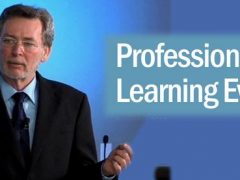
Live Learning Events
TRANSFORMATIONAL LEARNING Keynotes, Seminars, Workshops, Trainings, Learner-Leader Dialogues Professional Development, Seminars, and Workshops Inquiry Form – Conference Inquiry Form Comments and feedback from: Leaders in Learning – Recent Attendees – Teachers – Parents – Event Organizers “The most powerful professional development experience I have ever had. This was truly an awakening for me!” – Julie Colley Lowery, Education Specialist, Alabama State Department of Education […]
Share this:
- Click to share on Facebook (Opens in new window)
- Click to share on Twitter (Opens in new window)
- Click to share on LinkedIn (Opens in new window)
- Click to share on Pinterest (Opens in new window)
- Click to share on Pocket (Opens in new window)
- Click to share on Reddit (Opens in new window)
- Click to share on Telegram (Opens in new window)
- Click to share on Tumblr (Opens in new window)
- Click to share on WhatsApp (Opens in new window)
- Click to email a link to a friend (Opens in new window)
- Click to print (Opens in new window)
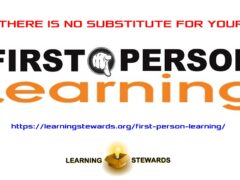
First-Person Learning
There is no substitute for your first-person learning Not just facts, statistics, and academic theories. Not just acceptance of what ‘experts’ say. Not just inculcated beliefs. When it comes to understanding learning you have 24×7 access to the most powerful learning laboratory in the world: your conscious, intentional, inside-out, awareness of, and participation in, whatever you are doing. Back […]
Share this:
- Click to share on Facebook (Opens in new window)
- Click to share on Twitter (Opens in new window)
- Click to share on LinkedIn (Opens in new window)
- Click to share on Pinterest (Opens in new window)
- Click to share on Pocket (Opens in new window)
- Click to share on Reddit (Opens in new window)
- Click to share on Telegram (Opens in new window)
- Click to share on Tumblr (Opens in new window)
- Click to share on WhatsApp (Opens in new window)
- Click to email a link to a friend (Opens in new window)
- Click to print (Opens in new window)
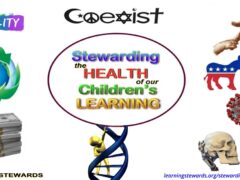
Stewarding Healthy Learning
The most minimally presumptuous, maximally relevant, thing we can do. How well children grow through the traumas, challenges, and disadvantages they experience depends on how well they learn. How well they rise to the opportunities and advantages they experience depends on how well they learn. From their emotional health and maturity to their mental health and […]
Share this:
- Click to share on Facebook (Opens in new window)
- Click to share on Twitter (Opens in new window)
- Click to share on LinkedIn (Opens in new window)
- Click to share on Pinterest (Opens in new window)
- Click to share on Pocket (Opens in new window)
- Click to share on Reddit (Opens in new window)
- Click to share on Telegram (Opens in new window)
- Click to share on Tumblr (Opens in new window)
- Click to share on WhatsApp (Opens in new window)
- Click to email a link to a friend (Opens in new window)
- Click to print (Opens in new window)
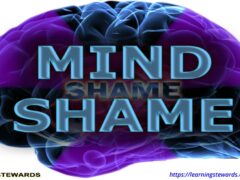
Mind-Shame
Shame is a pain in the self – a pain that results from our attention, often abruptly, intensely, and uncomfortably, focusing on what is ‘wrong’ with ‘me’. We don’t have to learn to feel shame. Like fear, anger, interest, and joy, we come innately able to experience the feeling, the sensation, of shame. However, we […]
Share this:
- Click to share on Facebook (Opens in new window)
- Click to share on Twitter (Opens in new window)
- Click to share on LinkedIn (Opens in new window)
- Click to share on Pinterest (Opens in new window)
- Click to share on Pocket (Opens in new window)
- Click to share on Reddit (Opens in new window)
- Click to share on Telegram (Opens in new window)
- Click to share on Tumblr (Opens in new window)
- Click to share on WhatsApp (Opens in new window)
- Click to email a link to a friend (Opens in new window)
- Click to print (Opens in new window)
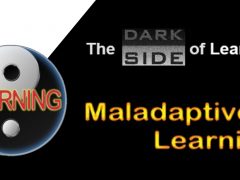
Unhealthy Learning
We are always learning but not all learning is good for us. Learning can be as unhealthy as it can be healthy. Learning is as responsible for what goes wrong in our lives as it is for what goes right in our lives. Learning has a dark side. Generally speaking, unhealthy behaviors result from unhealthy learning. We […]
Share this:
- Click to share on Facebook (Opens in new window)
- Click to share on Twitter (Opens in new window)
- Click to share on LinkedIn (Opens in new window)
- Click to share on Pinterest (Opens in new window)
- Click to share on Pocket (Opens in new window)
- Click to share on Reddit (Opens in new window)
- Click to share on Telegram (Opens in new window)
- Click to share on Tumblr (Opens in new window)
- Click to share on WhatsApp (Opens in new window)
- Click to email a link to a friend (Opens in new window)
- Click to print (Opens in new window)
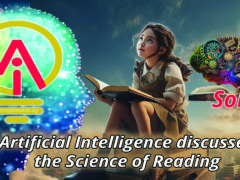
A.I. on the Science of Reading
Indeed the established assumptions about the inherent stagnancy of text permanently dictate this offline, strategy-based model of reading instruction.
Share this:
- Click to share on Facebook (Opens in new window)
- Click to share on Twitter (Opens in new window)
- Click to share on LinkedIn (Opens in new window)
- Click to share on Pinterest (Opens in new window)
- Click to share on Pocket (Opens in new window)
- Click to share on Reddit (Opens in new window)
- Click to share on Telegram (Opens in new window)
- Click to share on Tumblr (Opens in new window)
- Click to share on WhatsApp (Opens in new window)
- Click to email a link to a friend (Opens in new window)
- Click to print (Opens in new window)

BBC: What Does Reading On Screens Do To Our Brains?
The difference between “learning to read on paper” and “learning to read on screens” is a very important conversation.
Share this:
- Click to share on Facebook (Opens in new window)
- Click to share on Twitter (Opens in new window)
- Click to share on LinkedIn (Opens in new window)
- Click to share on Pinterest (Opens in new window)
- Click to share on Pocket (Opens in new window)
- Click to share on Reddit (Opens in new window)
- Click to share on Telegram (Opens in new window)
- Click to share on Tumblr (Opens in new window)
- Click to share on WhatsApp (Opens in new window)
- Click to email a link to a friend (Opens in new window)
- Click to print (Opens in new window)
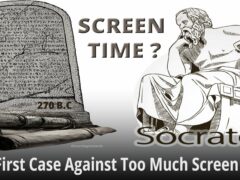
The First Case Against Too Much Screen Time
The first person known to argue against screen time was Socrates somewhere around twenty-four hundred years ago. He too was concerned with the unhealthy mental effects of spending too much time staring at and interacting with a hot technology. But the technology he was concerned about wasn’t digital, electronic, or interactive. Socrates was saying the […]
Share this:
- Click to share on Facebook (Opens in new window)
- Click to share on Twitter (Opens in new window)
- Click to share on LinkedIn (Opens in new window)
- Click to share on Pinterest (Opens in new window)
- Click to share on Pocket (Opens in new window)
- Click to share on Reddit (Opens in new window)
- Click to share on Telegram (Opens in new window)
- Click to share on Tumblr (Opens in new window)
- Click to share on WhatsApp (Opens in new window)
- Click to email a link to a friend (Opens in new window)
- Click to print (Opens in new window)
